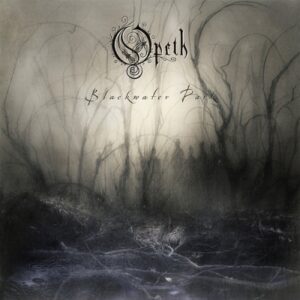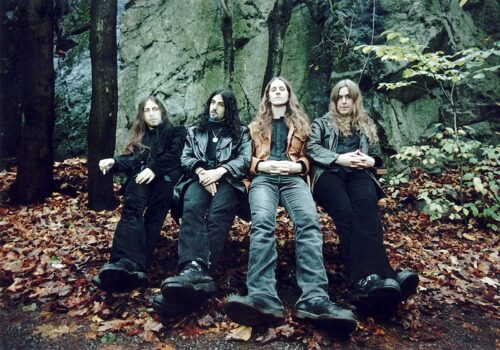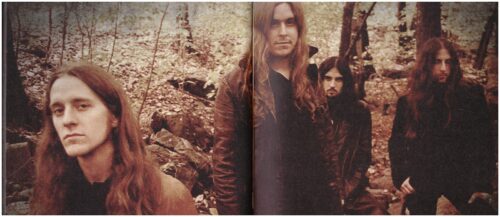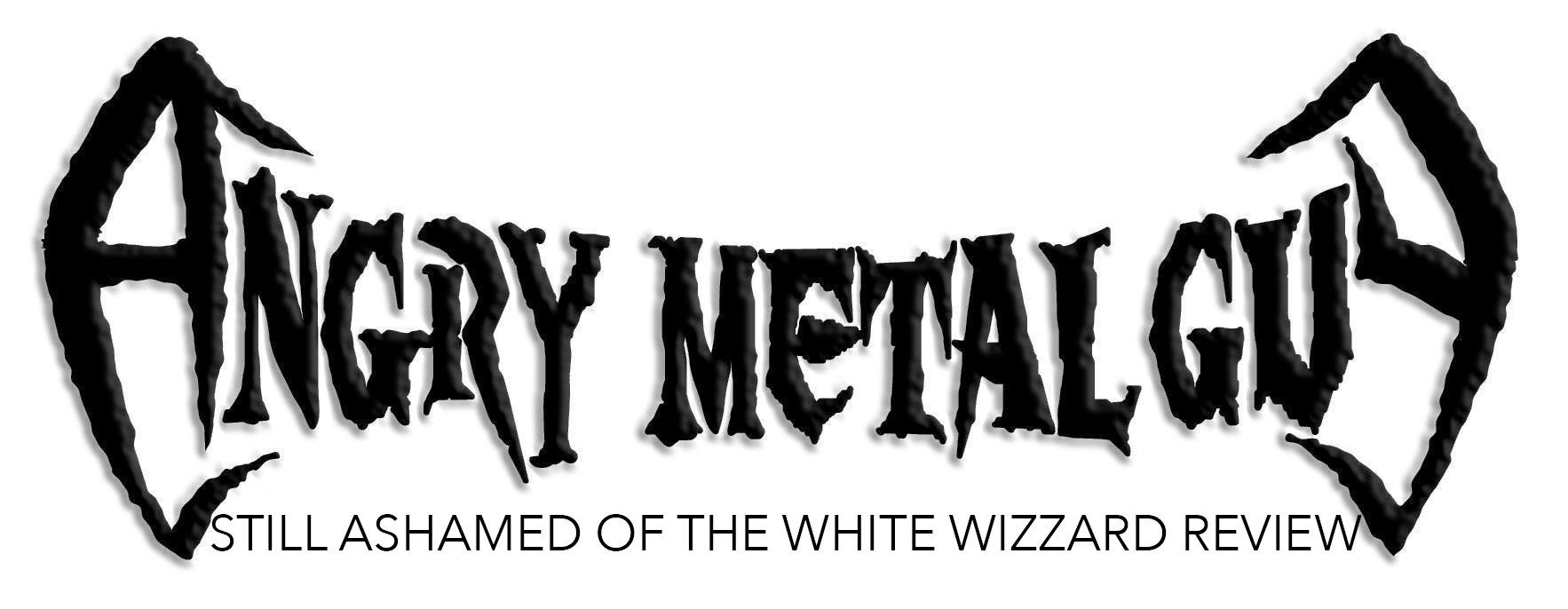 There are very few albums that I consider to be 5.0s or, in AMG money, ‘iconic.’ There are even fewer that I can actually picture the moment I first heard. One of those, however, is Blackwater Park. Opeth’s fifth full-length album probably shaped my extreme metal tastes more than any other single record and I cannot believe it is already 20 years old. That means that the night I first heard it is also almost 20 years ago: I’m at home, in a small Cornish village, sitting on the floor of my room; I’m pretty drunk after a night in the local pub and my best mate pulls this CD out of his bag and says “you gotta hear this!” At first, I hear nothing – or almost nothing – as that slow build opening to “The Leper Affinity” builds for 28 seconds before the first, huge riff drops and Mikael Åkerfeldt’s bestial roar rips out of my crappy speakers …
There are very few albums that I consider to be 5.0s or, in AMG money, ‘iconic.’ There are even fewer that I can actually picture the moment I first heard. One of those, however, is Blackwater Park. Opeth’s fifth full-length album probably shaped my extreme metal tastes more than any other single record and I cannot believe it is already 20 years old. That means that the night I first heard it is also almost 20 years ago: I’m at home, in a small Cornish village, sitting on the floor of my room; I’m pretty drunk after a night in the local pub and my best mate pulls this CD out of his bag and says “you gotta hear this!” At first, I hear nothing – or almost nothing – as that slow build opening to “The Leper Affinity” builds for 28 seconds before the first, huge riff drops and Mikael Åkerfeldt’s bestial roar rips out of my crappy speakers …
I love Blackwater Park both because it’s as near a perfect record as makes no odds and also because of the profound impact it had on me when I heard it. I will focus here on the former but I will just say this about Opeth’s impact on me. I was coming off the back of a rough couple of years, following the death of my father at a pretty young age, and I was really at the beginning of my exploration of heavier music. I was listening to punk and some hardcore, to Metallica, Pantera and Down, to Tool and System of a Down. I simply had no idea that music like Blackwater Park existed, nor that I needed it in my life. The incredible heaviness and technical complexity, combined with beautiful fragility and sorrowful delicacy, all while conveying a symphonic grandeur, simply blew me away. For those of you who’d been travelling with Opeth since Orchid, perhaps Blackwater Park was just a natural evolution, particularly coming off the back of Opeth’s other 5.0,1 1999’s Still Life. But for me, coming to Opeth cold, it was pretty much life changing.

The key to Blackwater Park’s greatness is Opeth’s ability to craft songs that both feel like they have movements – in the classical music sense – within them, while the songs themselves also form movements across the album as a whole. Whether it’s the graduated transitions from soaring melodies into crushing heaviness (“Blackwater Park”), the turn-on-a-sixpence drops into acoustic tenderness (“The Leper Affinity” and “The Drapery Falls”), the sparse use of grand piano (“Bleak,” courtesy of Steven Wilson, who also contributed backing vocals and lead guitar2), all blend in such an organic way that Blackwater Park flows like a stream. Despite its almost 70-minute runtime, the record is paced perfectly and is meant to be heard, and digested, in its entirety. That said, it is also packed with so many moments that can be singled out as exceptional: the keening lead as “Dirge for November” builds from its humble, stripped-back and vulnerable openings; the solo that rips out of claustrophobic heaviness of the middle section of “The Funeral Portrait,” like the sun bursting through a bank of black clouds; and, of course, that moment in “The Drapery Falls” – you know the one, so don’t pretend you don’t, the one at 7:48 as Åkerfeldt’s guttural bellow of “never agaaaain” falls off a cliff into an acoustic valley, which gradually rises back toward heavier highlands.
The inclusion of the folksy “Harvest” and acoustic, percussion-free instrumental “Patterns in the Ivy” was both a foreshadowing of Opeth’s future direction on Damnation and beyond, as well as a masterstroke for Blackwater Park itself. A negative take on those two tracks would be to say that they are unnecessary, as what they represent is covered elsewhere in the hugely progressive death metal stylings of the rest of the record and that their removal would get the whole (just) under the hour mark. Trust me, however, when I say that Blackwater Park would not be album it is without them. Those two tracks provide the space the album needs to breathe, with “Harvest” perfectly bridging the space between “Bleak” and “The Drapery Falls” (one of my top ten songs of all time), while “Patterns in the Ivy” provides a short respite and time for reflection before the epic title track washes over you to close the album.

I have said that, personally, I would score both Blackwater Park and Still Life 5.0/5.0 given the chance but the former has my heart as well as my head. That’s partly because it was my first, precious exposure to Opeth but it’s also because I think it sees the band at their creative and performative peak. Still Life had both a harsher edge to it in places, which I love in its own right, and one or two moments where the flow perhaps lacks ever so slightly for me. Blackwater Park, however, is so silky smooth. It glides from one moment, one idea, to the next like quicksilver, without ever sacrificing the heaviness that made Oldpeth so special. Åkerfeldt’s vocals feel more polished than ever, with both his reedy cleans and death metal roars bursting with power and emotion, while the riffs and leads laid down by him and Peter Lindgren, together with the huge bass performance from Martin Mendez, gives the whole record a gorgeous, rich texture. One part of the album that is perhaps overlooked, is the performance of Martin Lopez on drums. Perhaps unsurprisingly given his work from 2010 onward with Soen, his performance behind the kit here feels progressive, utilizing blast beats sparingly even in the album’s heaviest sections, which actually serves to heighten their impact.
There is a lot more I could say about this record but I’ve massively overstayed my welcome already, so I will leave you with this thought: Opeth were at the forefront of progressive metal for a number of years and continue to experiment even now, having abandoned metal’s shores altogether. In my view, however, they never bettered Blackwater Park’s combination of heaviness and delicacy, nor the way in which the album was put together. It may not be every fan’s favorite, but it is mine and Blackwater Park is Opeth’s magnum opus.

















